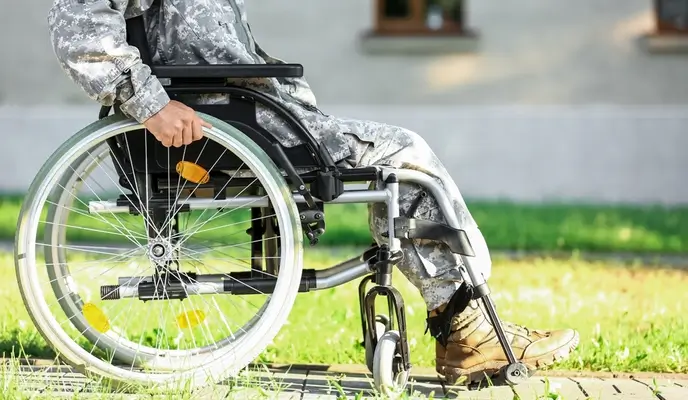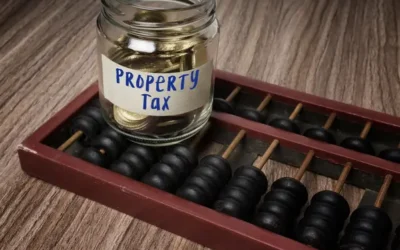For many Veterans, transitioning to civilian life comes with unique financial challenges.
Property tax exemptions for disabled Veterans can offer significant relief, particularly for those with a 100% disability rating.
By reducing or eliminating property taxes, these exemptions make homeownership more accessible and affordable.
This article delves into the details of property tax exemptions, eligibility requirements, and how they can benefit Veterans and their families.
Understanding Property Tax Exemptions for Disabled Veterans
Property tax exemptions are financial benefits provided by local and state governments to eligible Veterans. These programs aim to reduce the burden of homeownership for Veterans who have sustained service-connected disabilities.
For Veterans with a 100% disability rating, many states offer full exemptions from property taxes, effectively eliminating one of the most significant costs of owning a home. This benefit can save Veterans thousands of dollars annually, depending on their property’s assessed value and local tax rates.
Benefits of Property Tax Exemptions
- Significant Savings: Veterans with 100% disability ratings can potentially save thousands of dollars annually on property taxes.
- Improved Financial Stability: These savings can be redirected toward other expenses like home maintenance, healthcare, or education.
- Increased Accessibility to Homeownership: For Veterans on fixed incomes, tax exemptions make buying and keeping a home more affordable.
According to the National Association of Realtors, the average property tax bill in the U.S. was $3,719 in 2023. In high-tax states like New Jersey or Illinois, property taxes can easily exceed $10,000 annually.
For Veterans, these exemptions provide a pathway to financial stability.
Who Qualifies for Property Tax Exemptions?
Eligibility for property tax exemptions varies by state, but common criteria include:
- Disability Rating: Veterans must have a service-connected disability rating from the Department of Veterans Affairs (VA). A 100% disability rating often qualifies for the full exemption.
- Primary Residence: The property must be the Veteran's primary residence to qualify for the exemption.
- Ownership Requirements: Veterans must own the home in their name or jointly with a spouse or dependent.
"Property tax exemptions are one of the most underutilized benefits available to Veterans," explains John Carter, a Veteran-focused mortgage consultant. "It’s vital for eligible Veterans to explore these opportunities as part of their financial planning."
State-by-State Property Tax Exemption Overview
While most states offer property tax exemptions for Veterans, the rules and benefits differ significantly. Below is a table outlining examples from several states:
| State | Exemption Details | Eligibility Criteria |
|---|---|---|
| Texas | Full property tax exemption for 100% disabled | Must own and occupy the home as a primary residence |
| California | Up to $200,000 exemption for 100% disabled Veterans | Income limits may apply |
| Florida | Full exemption for 100% disabled Veterans | Requires proof of disability rating |
| New York | Partial exemption; amount varies by local tax rates | Additional benefits for Cold War Veterans |
| Illinois | Full exemption for 100% disabled Veterans | Proof of residency required |
The Application Process: How to Claim Your Exemption
Navigating the application process for property tax exemptions can feel overwhelming, but breaking it down step by step makes it manageable:
- Verify Your Eligibility: Obtain a copy of your disability rating letter from the VA.
- Complete the Application: Contact your local tax assessor's office to request the appropriate forms.
- Submit Required Documentation: Provide proof of residency, your disability rating letter, and any additional documents requested
- Meet Deadlines: Submit your application by the deadline, which varies by state and county.
“Veterans should connect with their local tax assessor’s office early,” advises Sarah Fields, a housing advocate. “The process is straightforward but missing deadlines can delay benefits.”
Challenges Veterans May Face
While property tax exemptions provide incredible benefits, they aren’t without challenges:
- Complex Application Processes: Requirements vary by state and locality, leading to confusion for some Veterans.
- Eligibility Confusion: Veterans may not realize they need to apply or provide documentation to qualify.
- Lack of Awareness: Many Veterans aren’t aware of this benefit, leaving significant savings untapped.
To address these barriers, advocacy groups like the American Legion and local VA offices often offer assistance with the application process.
Additional Benefits for Disabled Veterans
In addition to property tax exemptions, Veterans with a disability rating can access other financial benefits, including:
- VA Loan Funding Fee Waivers: Veterans with a 10% or higher disability rating are exempt from the VA loan funding fee, saving thousands on home purchases or refinancing.
- Adaptive Housing Grants: These grants help Veterans modify their homes for better accessibility.
- State Tax Benefits: Many states offer income tax exemptions or deductions for disabled Veterans.
These complementary programs make homeownership even more accessible for Veterans.
Housing Market Data for Veterans
Current housing market trends highlight the importance of financial benefits like property tax exemptions for Veterans. The following table provides insights into the 2026 housing market:
| State | Exemption Details | Eligibility Criteria |
|---|---|---|
| Texas | Full property tax exemption for 100% disabled | Must own and occupy the home as a primary residence |
| California | Up to $200,000 exemption for 100% disabled Veterans | Income limits may apply |
| Florida | Full exemption for 100% disabled Veterans | Requires proof of disability rating |
| New York | Partial exemption; amount varies by local tax rates | Additional benefits for Cold War Veterans |
| Illinois | Full exemption for 100% disabled Veterans | Proof of residency required |
"Property tax exemptions are game-changers for disabled Veterans," says Lisa Hammond, a senior mortgage advisor. "They not only make homes more affordable but also provide long-term financial relief."
Frequently Asked Questions
What is a property tax exemption?
A property tax exemption reduces or eliminates the taxes owed on your primary residence.
Who qualifies for property tax exemptions?
Veterans with a 100% disability rating from the VA often qualify, but requirements vary by state.
How do I apply for a property tax exemption?
Contact your local tax assessor's office to submit an application along with required documentation.
Are there deadlines for applying?
Yes, deadlines vary by state and county. Check with your local tax office.
Does the exemption apply to rental or investment properties?
No, exemptions are typically limited to primary residences.
Can I combine this benefit with others?
Yes, exemptions often pair with other VA benefits like funding fee waivers.
What if I move to a different state?
You’ll need to reapply for the exemption in your new state of residence.
Do surviving spouses qualify?
In many states, surviving spouses of 100% disabled Veterans are also eligible.








